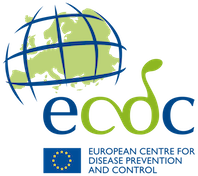This is a common space to all nominated participants of any training activity of the AURORAE Training Programme 2022-2025.
The overall objectives of the AURORAE trainings are to support countries in building capacities in the areas of diagnosis, detection, identification and characterisation of primarily influenza and SARS-CoV-2 viruses. Courses may include topics like diagnostic methods, molecular typing, sampling strategies for disease surveillance and for detection, use and limitation of test methods, testing strategies, test interpretation, bioinformatics, biosafety issues, shipment of infectious material, quality assurance, as well as capacity gaps identified through EQAs and/or surveys.
The training formats include face-to-face training courses (wetlab and drylab), twinning visits of various durations, and virtual trainings (webinars, instructive videos, self-paced online trainings).
It contains links to training events and to the respective training materials. Click here to read more about AURORAE.
- Face-to-face trainings (3-5 days).
- This type of training will give a broad overview and is therefore targeted to participants that will benefit most from such a broad competency training
- The learning objectives are related to influenza and/or SARS-CoV-2 public health laboratory methods and basic genomic epidemiology and bioinformatic essentials
- The aim is to offer one face-to-face training on influenza and one on SARS-CoV-2 per year
- Participants should have a microbiology or related background and familiar with common molecular techniques (such as PCR)
- Up to ten participants per course
- Twinning visits (2, 5 or 10 days)
- This type of training will give an in-depth focussed training on a selection of specific methods.
- For the twinning visits, usually one participant will visit a twinning institute for a tailored training. Therefore, the exact training content will depend on both the twinning institute and the participant and will be discussed and agreed before the start of the training.
- The learning objectives are related to influenza and/or SARS-CoV-2 public health laboratory methods and basic genomic epidemiology and bioinformatic essentials
- Virtual trainings
- Range of formats possible from webinars to instructional videos or self-paced online courses
- The learning objectives are related to influenza and/or SARS-CoV-2 public health laboratory methods and basic genomic epidemiology and bioinformatic essentials
- Virtual trainings will be hosted on the EVA platform
- EQA and ring trial activities
- Centralised laboratory support for influenza and SARS-CoV-2 viruses in-depth characterisation for timely pandemic response
- Training activities for detection, characterisation and response.
- Sciensano (SCIN), Belgium
- Institut Pasteur (IP), France
- Hospices Civils de Lyon (HCL), France
- Charité – Universitätsmedizin Berlin (CU), Germany
- Robert Koch-Institute (RKI), Germany
- Aristotle University of Thessaloniki (AUTH), Greece
- Hellenic Pasteur Institute (HPI), Greece
- Laboratoire National de Santé (LNS), Luxembourg
- National Institute for Public Health and the Environment (RIVM), Netherlands
- Erasmus University Medical Center Rotterdam (EMC), Netherlands
- Norwegian Institute of Public Health (NIPH), Norway
- National Institute of Health Dr. Ricardo Jorge (INSA), Portugal
- Professionals working in public health institutions with a background in public health microbiology or related and who are or will be involved in the molecular/genomic surveillance of influenza and/or SARS-CoV-2 viruses including laboratory assays for detection and characterisation of the viruses as well as production, handling, or analysis of next generation sequence data.
Participants should be part of the ECDC ERLI-Net and/or ECOVID-LabNet or a national public health institute or associated institute in countries of the EU/EEA, the Western Balkan (Albania, Kosovo, Montenegro, Serbia, North Macedonia, Bosnia and Herzegovina) or Türkiye.
- In due time before training activities are planned, ECDC will announce by email to the National Focal Points for viral respiratory diseases the opportunities to express interest in these training activities.
- Expressions of interest for participation are collected and a selection of participants is made by ECDC.
- Priority will be given to participants who have not yet participated in a recent ECDC or WHO funded course covering similar topics and based on training needs identified through past EQAs or surveys if applicable.
- More than one applicant from the same country will be accepted only based on available seats.
